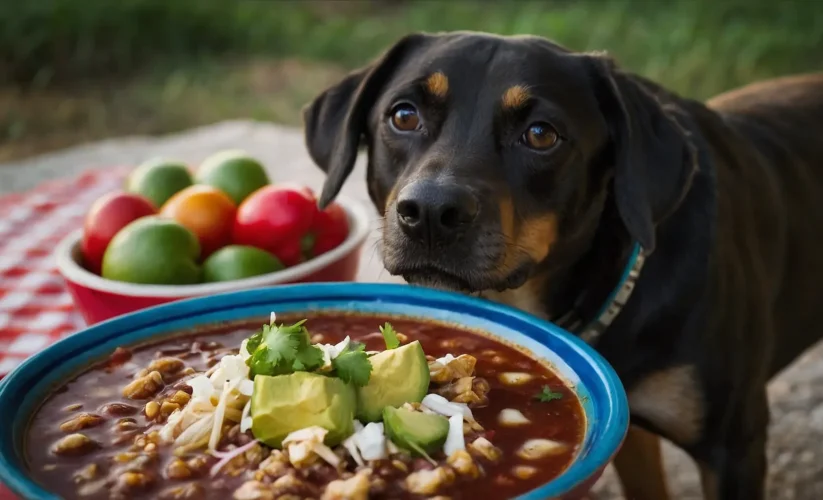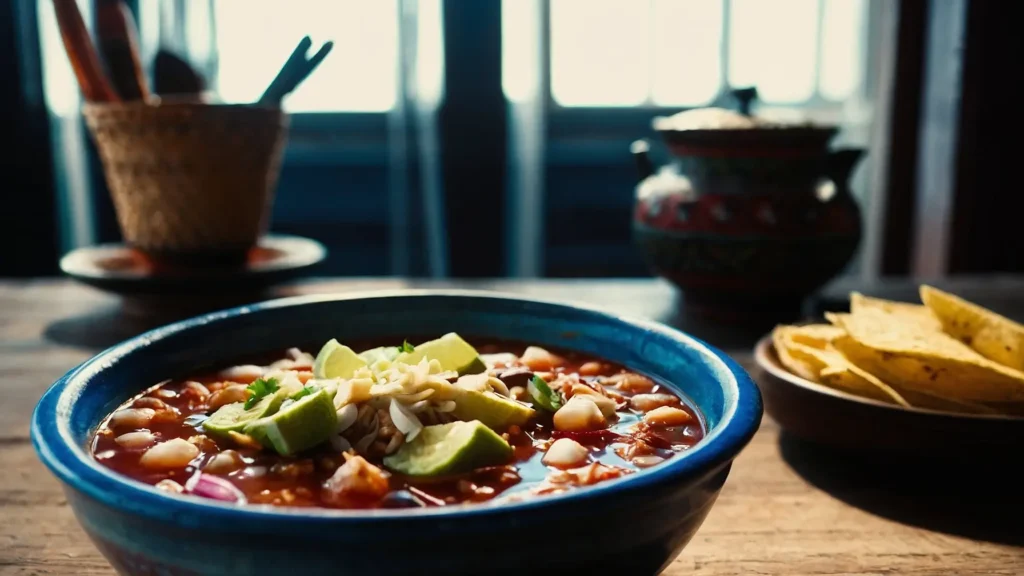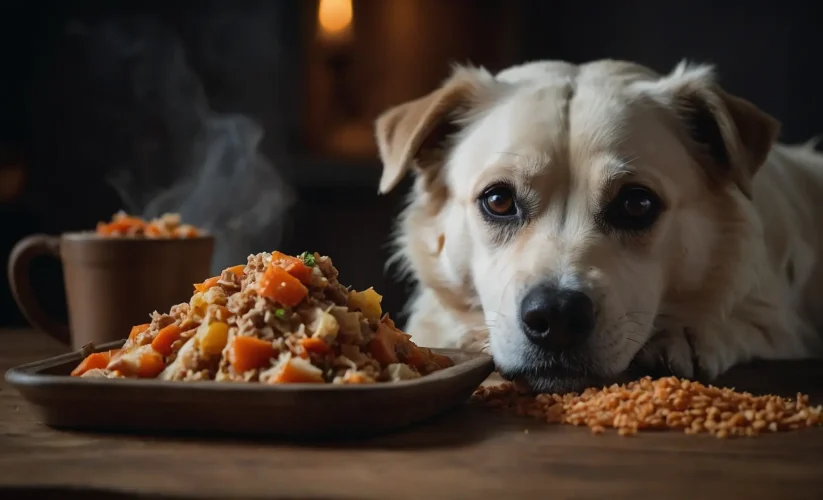Can dogs eat pozole?

As a seasoned dog blogger and devoted dog parent, I understand the complexity and the curiosity that comes with feeding our furry friends. One question that often pops up among dog owners is, “Can dogs eat pozole?” Pozole, a traditional Mexican soup made primarily of hominy (nixtamalized corn) and meat, typically pork, chicken, or sometimes beef, garnished with lettuce, chili peppers, onion, garlic, radishes, avocado, salsa, or limes, is a flavorful and hearty dish beloved by many. But when it comes to sharing our favorite meals with our canine companions, it’s crucial to tread carefully. This post delves deep into the suitability of pozole for dogs, analyzing its components to understand how it fits into a dog’s diet. We’ll explore the potential benefits and risks, offering a balanced perspective to ensure your dog’s health and happiness.
Is Pozole Good for Dogs?
At first glance, the primary ingredients of pozole—meat and hominy—seem harmless and potentially beneficial for dogs. Meat, a staple in canine diets, is an excellent source of protein and essential amino acids that support muscle development and energy. Hominy, processed corn, provides carbohydrates for energy. However, the question “Can dogs eat pozole?” requires a deeper examination beyond the basic ingredients.
When considering homemade pozole for dogs, it’s essential to tailor the recipe to their dietary needs. A simplified version of pozole, without the traditional spices and garnishes, could offer a protein-rich meal. The absence of harmful ingredients like onions and garlic, which are toxic to dogs, makes it a safer choice. Additionally, ensuring the meat is well-cooked and avoiding fatty cuts can help prevent digestive issues and pancreatitis.
Yet, it’s crucial to recognize that the nutritional needs of dogs differ significantly from humans. While a small portion of plain, modified pozole might be acceptable occasionally, it cannot replace a balanced, commercial dog food designed to meet all their nutritional requirements. The benefits of feeding pozole to dogs are limited and should be approached with caution.
Is Pozole Bad for Dogs?
While the concept of sharing our beloved pozole with dogs is tempting, several factors make traditional pozole recipes unsuitable and potentially harmful for canine consumption. The primary concern in answering “Can dogs eat pozole?” lies in the ingredients commonly used to enhance flavor, such as onions, garlic, and excessive salt, which are toxic to dogs. Onions and garlic can cause oxidative damage to red blood cells, leading to anemia, while excessive salt intake can result in sodium ion poisoning.

Furthermore, the rich and spicy nature of pozole, often loaded with chili peppers and other spices, can upset a dog’s digestive system, leading to diarrhea, vomiting, and discomfort. The high-fat content, particularly in versions made with pork, poses a risk for pancreatitis, a serious and painful condition for dogs. Additionally, the garnishes typically served with pozole, like avocado (which contains persin, harmful to some dogs), and radishes, may not be ideal for a dog’s digestive tract.
It’s also worth mentioning that the hominy in pozole, while not toxic, is a type of corn that offers minimal nutritional value to dogs. The processing of hominy does not significantly enhance its nutritional profile for canine diets. As such, the risks associated with feeding traditional pozole to dogs far outweigh any potential benefits, leading to the conclusion that it’s best avoided.
Are Other Soups Safe For Dogs?
Exploring alternatives to pozole can lead to safer and more suitable options for dogs. Homemade soups, tailored for canine consumption, can be nutritious and hydrating treats. When pondering “Can dogs eat pozole?” consider instead preparing a simple broth-based soup with ingredients known to be safe for dogs. Chicken, turkey, or beef, cooked without seasoning and combined with dog-friendly vegetables like carrots, green beans, and peas, can create a wholesome meal or supplement.
It’s crucial to avoid adding onions, garlic, salt, and heavy spices to these soups, keeping them as plain and simple as possible. Bone broth is another excellent choice, offering hydration and nutrition, particularly beneficial for dogs with digestive issues or those needing extra joint support. Remember, these soups should not replace a dog’s regular diet but serve as occasional treats or meal toppers.
When introducing any new food, including homemade soups, start with small amounts to monitor your dog’s reaction. Gradual introduction helps prevent digestive upset and identifies any potential allergies or intolerances. Consulting with a veterinarian before making significant changes to your dog’s diet is always advisable, ensuring their meals are balanced and appropriate for their specific health needs.
Final Thoughts
In conclusion, while the question “Can dogs eat pozole?” might stem from a desire to share our culinary experiences with our dogs, the traditional form of this dish is not suitable for canine consumption. The risks associated with its ingredients necessitate caution. However, this doesn’t mean we can’t explore other ways to treat our dogs with soup-like meals that cater to their dietary needs.
Creating dog-friendly versions of our favorite dishes can be a fun way to bond with our pets, provided we prioritize their health and nutritional requirements. Always opt for simplicity and safety, avoiding toxic ingredients and sticking to those known to benefit canine health. Remember, the goal is not just to feed our dogs but to nourish them, ensuring they live long, healthy, and happy lives beside us.
As dog owners, our responsibility is to make informed choices about our pets’ diets. While “Can dogs eat pozole?” invites a nuanced discussion, it ultimately guides us toward better understanding and catering to our dogs’ nutritional needs, emphasizing the importance of a balanced diet tailored specifically to them.










